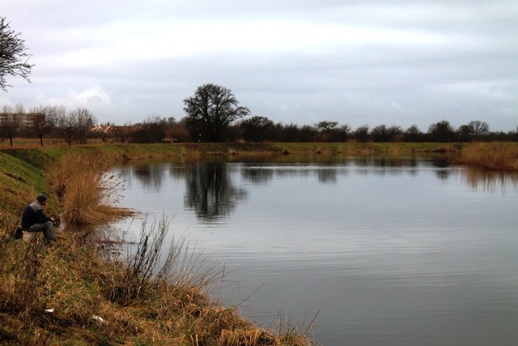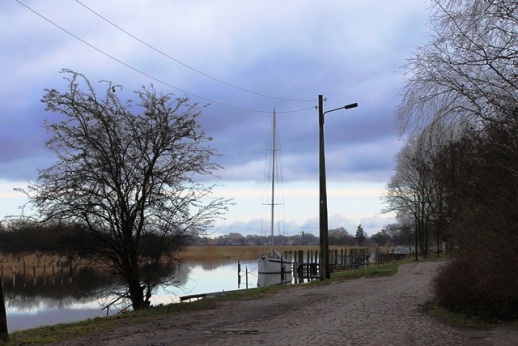Words and pictures by Paul Scraton
Our hotel sat right at the end of Wieck harbour, at the very point where the river Ryck empties out into the Bay of Greifswald and the Baltic Sea after its 28 kilometre journey east from its source close to the onomatopoeically-named town of Grimmen. We drove north from Berlin along the autobahn in the driving rain, aiming for this little fishing village with its neat harbour in the shadow of a hand-cranked wooden bascule bridge to escape the post-holiday blues and explore the old Hanseatic city of Greifswald, five kilometres up stream. The next morning, after watching the small fishing boats navigate the last stretch of river and into the bay, we took our first steps along the embankment path towards the historic centre of the city, the socialist-era apartment blocks of the eastern suburbs standing gloomy in the drizzle a mile or so away.
We were joined on the path by a steady stream of joggers, walkers, dogs and cyclists, moving in both directions, and above the fisherman who found their spots below where we walked, on the edge of the water. Although the housing estates were never out of sight across the waterlogged fields we had half an hour or so of what felt like walking through open country. We saw a pair of herons on the opposite bank and we could no longer hear the sound of traffic on the main road. We passed a row of apple trees, the fruit lying in rotting piles beneath the branches, and as we wondered at all this fruit going to waste, we saw a solitary blackbird in the branches – until it was scared away by the urgent ring of a cyclists bell.
We reached the edgelands of the city, the footpath now separating the river from allotment gardens and wire fences, lock-up garages and concrete paving slabs between which weeds grew. There was a muddy football pitch and the university boathouse, and then the path became an ancient cobbled street and we had come to the old Greifswald harbour, its heyday long past and its red brick warehouses crumbling besides new waterside residential developments and the last remaining workshops of fading light industry.
By the time Germany unified near the end of the 19th Century and the rapid industrialisation that accompanied it, Greifswald golden age as a Baltic trading port was long behind it. Despite the attempts of the East German economic planners in the years after the Second World War, including the building of a nuclear power station and the housing estates for the workers, the business of this city has long been education, and in recent years an impressive new university campus has grown up to the south of the spires and towers of the historic city centre.
Leaving the river at the city harbour, now a museum-berth for lovely old sailing ships, we explored the cobbled streets of the old town, the university campus, and the concrete-block housing estates so beloved of those socialist city planners. But as we left the last litter-strewn verge behind us we following a winding path that took us back to the Ryck and our footpath, and now we walked with the flow of the river towards Wieck and home. We found a tiny pub with eight stools at the bar and a solitary table, complete with old nets, navigation charts and a collection box for the local lifeboat station and drank a beer. In the empty beer garden outside there was a smoker, and fish was the only food on the menu. Our feet ached from the walk but the owner greeted our “stranger’s faces” with a smile and so when the beer was empty we ordered another. The pub, the village, the city and the river… it felt as if they had all been lucky discoveries and the perfect way to ease into the new year.

